|
|
|
Sort Order |
|
|
|
Items / Page
|
|
|
|
|
|
|
| Srl | Item |
| 1 |
ID:
104554
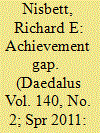

|
|
|
| 2 |
ID:
104552
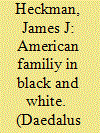

|
|
|
| 3 |
ID:
102605
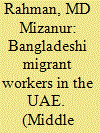

|
|
|
|
|
| Publication |
2011.
|
| Summary/Abstract |
This article examines the migration experiences of women and men under conditions of temporary migration. It has been amply shown that gender is relevant to most aspects of migration. However, despite the fundamental increase in research on gender and migration, a transnational space, where gender matters but which has not bee so thoroughly explored to date, is the experiences of women and men migrants in the migration process, especially under conditions of labour migration in the Gulf States. Focusing on Bangladeshi male and female migrant workers in the UAE, this research sheds light on gender-differentiated patterns of demographic profiles, recruitment and pre-departure costs, working and living experiences, wages, savings, and remittances, health care and leisure activities and reports substantial variation in migration experiences across gender lines.
|
|
|
|
|
|
|
|
|
|
|
|
|
|
|
|
| 4 |
ID:
095234
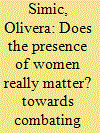

|
|
|
|
|
| Publication |
2010.
|
| Summary/Abstract |
Women are being encouraged to join peacekeeping operations as sexual violence problem-solving forces while simultaneously undertaking a complex role as 'protectors' of local women from local men and male peacekeepers. Since the adoption of Security Council resolution 1325 in 2000, the UN has urged states to deploy more women. Among the implicit assumptions underlying these calls are that an increase in the representation of women in peacekeeping operations (PKOs) will lead to a decrease in the cases of HIV/AIDS, a decline in the number of brothels around peacekeeping bases, and a reduction in the number of babies fathered and abandoned by peacekeepers after their mission comes to an end. Evidence suggests that the presence of women peacekeepers can and does foster a change in male behaviour when women are deployed in PKOs. This article argues, however, that countering abuse should not be a substitute for the more encompassing goal of improving gender balance and equality in PKOs. While there is a need to combat sexual violence in PKOs, the responsibility for prevention should be on troop-contributing countries, which need to exercise accountability and prosecute sexual violence committed by their peacekeepers. Diverting responsibility to women does not address the problem of sexual violence in PKOs, or help eradicate its causes.
|
|
|
|
|
|
|
|
|
|
|
|
|
|
|
|
| 5 |
ID:
092944
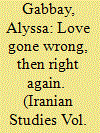

|
|
|
|
|
| Publication |
2009.
|
| Summary/Abstract |
This article examines male/female dynamics in three versions of the classical story of the Sassanian prince Bahr m G r and his lyre-playing slave girl: that of the Sh hn ma of Firdaws?, the Haft Paykar of Niz m? Ganjav?, and the Hasht Bihisht of Am?r Khusraw. It argues that each version provides progressively more positive depictions of intergender dynamics, ones that are contingent upon more egalitarian understandings of the male/female dichotomy. The later authors destabilize the categories of "male" and "female," equalizing and even uniting the dichotomous pairs, so that men and women draw nearer to each other in qualities rather than remaining in their usual polarized positions. In the Hasht Bihisht, moreover, we witness a reversal of hierarchies in which traditionally feminine qualities receive preference over masculine virtues-an act that suggests fresh possibilities for harmonious interactions between the sexes.
|
|
|
|
|
|
|
|
|
|
|
|
|
|
|
|
| 6 |
ID:
106946
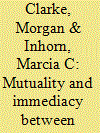

|
|
|
|
|
| Publication |
2011.
|
| Summary/Abstract |
This article concerns the dominant institution of religious authority within modern Usuli Twelver Shi?i Islam: the marja?iyya. The most senior clerics serve as "sources of emulation" (mara-ji? al-taqli-d), informing the moral conduct of their lay "imitators" (muqallidu-n). Despite the importance of this relationship, academic writing on what we call its "affective" qualities, especially from lay perspectives, is limited. We provide ethnographic data from anthropological research into Islamic medical ethics in Lebanon. Interviews in 2003 with infertile Shi?i patients who were considering controversial assisted reproductive technologies revealed rare insights into which authorities they followed and in what numbers and how this relationship was experienced and drawn upon by those in need. We compare the very different relationships inspired by the two authorities most cited in our study: the late Beirut-based Ayatollah Fadlallah; and the Iranian Ayatollah Khamina?i, Hizbullah's patron. From his local base, Fadlallah offered a vivid and responsive persona of a qualitatively distinct type.
|
|
|
|
|
|
|
|
|
|
|
|
|
|
|
|
|
|
|
|
|